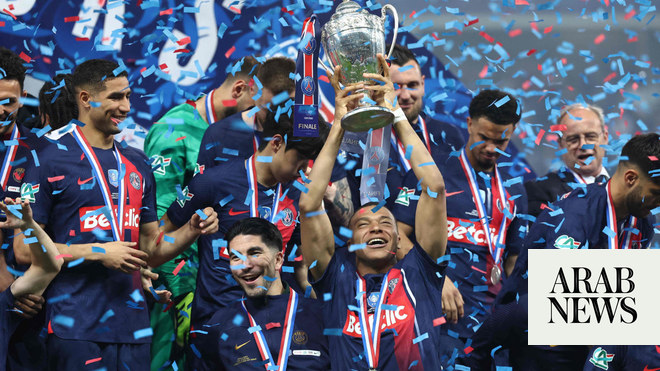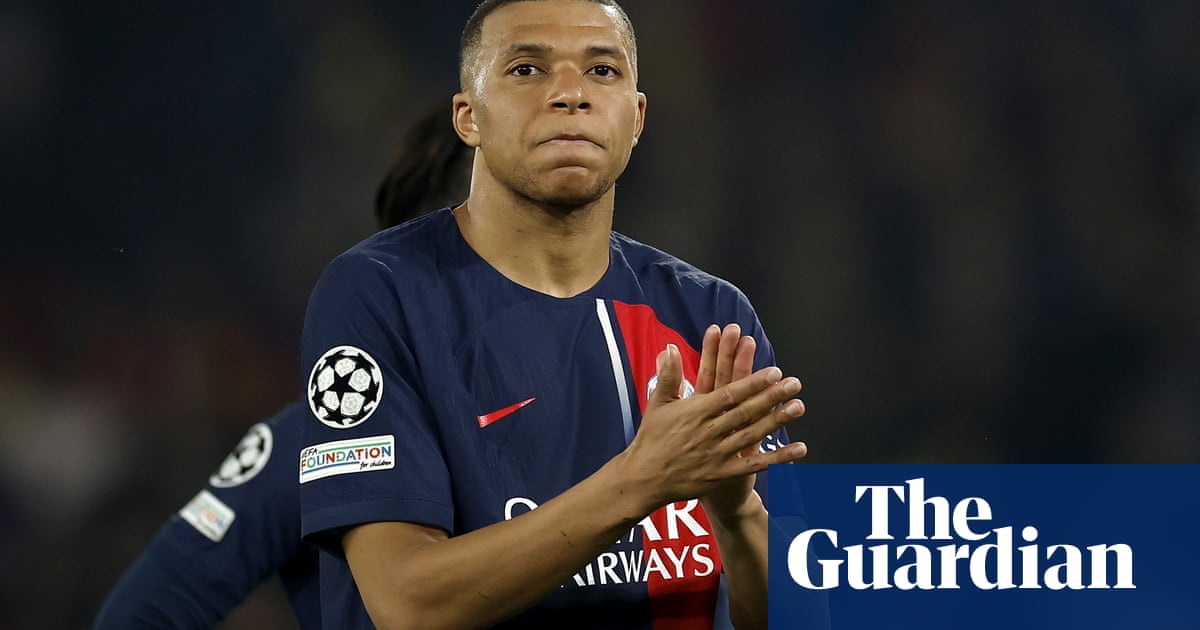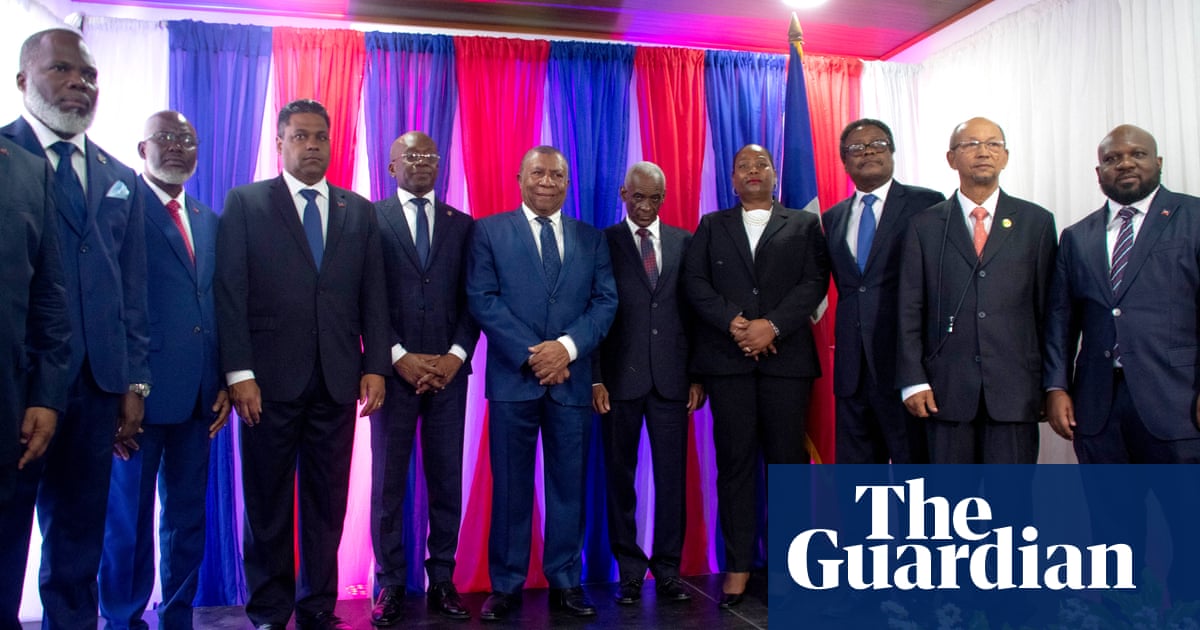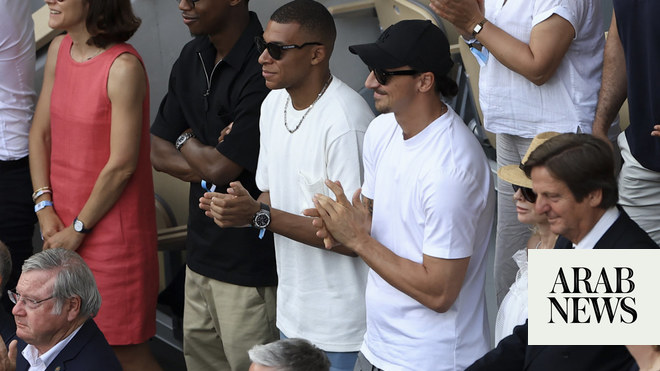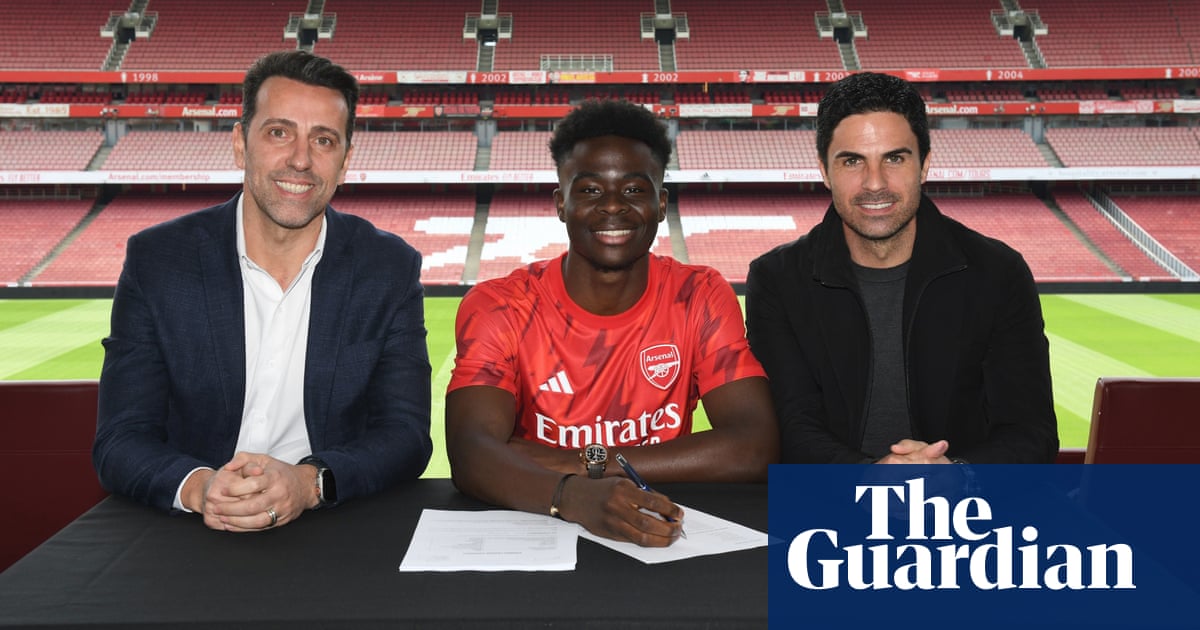
Presidential candidate was not the title Kylian Mbappé was aiming for at the start of the campaign. However, some of those uninspired by the choice in France’s presidential elections last month crossed out the names Emmanuel Macron and Marine Le Pen to scrawl “Mbappé” on their ballot papers instead. With his humble smile, tailored suit and nonchalant waves to fans outside the Parc des Princes, there was something presidential to Mbappé’s media address following his shock signing of a new three-year PSG contract. The new power that comes with it could match his presidential demeanour.
Mbappé’s decision to stay at PSG, a fanciful situation a few months ago, marks the start of sweeping changes within the club. Leonardo, the sporting director, has already exited for the second time and the coach, Mauricio Pochettino, is widely expected to follow. Large parts of an unwieldy squad are finally expected to be sold too, something Leonardo struggled with, while PSG’s prolific but little-used academy could finally take on genuine importance.
As well as what is reported as a gargantuan €100m signing bonus and a €50m salary, Mbappé is expected to take a meaningful role in PSG’s wider decision-making. His influence is already shaping the club. The appointment of Luís Campos as sporting director – a friend of Mbappé’s from their days at Monaco – was borne out of contract talks between Mbappé and PSG. The player’s continued presence influenced Campos’s acceptance.
Pochettino’s position, meanwhile, has improved thanks to Mbappé, who spoke of his “great relationship” with the coach. That directly contradicts the club’s position under Leonardo, who repeatedly offered Pochettino’s job to Zinedine Zidane, but Pochettino could yet see out the final year of his deal. Although he waved away the suggestion, Mbappé’s oversight could extend to transfers. According to L’Équipe, he has agreed to the potential sale of Neymar this summer.
While traditionalists will balk at a player wielding such political power, Mbappé’s new status represents an interesting footballing experiment. Although concessions made to Mbappé were primarily borne out of desperation, as PSG feared the loss of perhaps the world’s best player to a major rival for free, player power of this sort could make sense for modern football, under the right circumstances.
Having handled the relentless coverage of his future with poise and humour while his performances have only improved, Mbappé’s reputation has grown inside and outside PSG. Giving footballers too much influence at clubs could cause problems – given their egos, inexperience and the fact that transfer decisions directly affect their own futures, and that too much power could undercut the coach’s authority – but there’s little doubting Mbappé’s maturity, intellect and, now, dedication.
He is the club’s highest-paid, most valuable and most influential component. PSG might argue that no one is more crucial to their success than Mbappé, so why not at least consult him on major decisions? PSG’s established hierarchy, despite a decade of trying, have hardly become a bastion of competence amid constant infighting between various coaches, sporting directors and leaders as well as a failed transfer policy. While the whims of other players have been pandered to by the club, this would be a first for decision-making power.
Mbappé’s decision to stay at PSG could prove seismic for the landscape of European football. Despite some strong displays in European competitions this season, the quality at the top of La Liga is diminishing. It was previously the league that drew the world’s very best talent but, having lost Cristiano Ronaldo and Lionel Messi, Spanish football has also missed out on this generation’s two leading forwards, with Mbappé staying in Paris and Erling Haaland, who was chased by Madrid and Barcelona, signing for Manchester City.
While the Premier League’s financial power may have stretched its lead on interest, prestige, resources and player-for-player (although perhaps not team-for-team) quality, the other four of the traditional big five leagues are concertinaing together in these areas. The interest generated by Mbappé’s continued presence in Ligue 1 helps the league’s status and potentially its ability to compete financially. It’s something Emmanuel Macron, the French president, was well aware of, repeatedly speaking with Mbappé as he mulled over his choices. Both Macron and the club leant heavily on Mbappé’s alleged “responsibility” to France and Ligue 1. “I heard the call of the homeland and of the capital city,” Mbappé explained.
The manner of Mbappé’s decision could have personal as well as continental implications. Having idolised Cristiano Ronaldo as a youngster, Mbappé is clearly drawn to football’s grandest institution. He is still just 23, so joining Madrid at some point likely remains a target. His talent would no doubt override everything else, but Florentino Pérez, the Real Madrid president, is a proud master of an even prouder club. Mbappé called him personally to explain his decision to stay, but Pérez is seething and may take some time to cool down.
After months of being close to certain Mbappé would join, even reportedly planning an unveiling and telling other prospective signings, Spanish football has been deflated and infuriated by Mbappé’s change of mind. If Mbappé joins Madrid at the end of this three-year contract, or even beforehand to incur a huge transfer fee, he may face some opposition.
Antoine Griezmann rejected Barcelona publicly via his La Decision documentary in 2018 before moving a year later. The Frenchman was not welcomed warmly by his new, recently jilted, teammates and fans. Mbappé could face a similar sentiment from Madrid fans and players, should he eventually move to Spain.
For now, his change of heart is a major political triumph for PSG, and especially the club’s Qatari owners. For the world’s leading player – albeit a local already playing for them – to reject a move to Spain, despite Real Madrid reportedly making a comparable, perhaps even slightly better, financial offer, shows the standing PSG now enjoy. They will argue it represents tangible proof that PSG are becoming one of the world’s major sporting brands, a stated aim when they acquired the club a decade ago.
Nasser Al-Khelaifi is the PSG president and he carries the financial muscle, but Mbappé could soon become the epicentre of power at the Parc des Princes. If a ballot were to be held on who PSG’s true leader might be, there’d be no need to cross out the names Al-Khelaifi, Pochettino and Campos. Mbappé’s would be the only option.
This is an article from Get French Football News
Follow Eric Devin, Adam White and GFFN on Twitter




